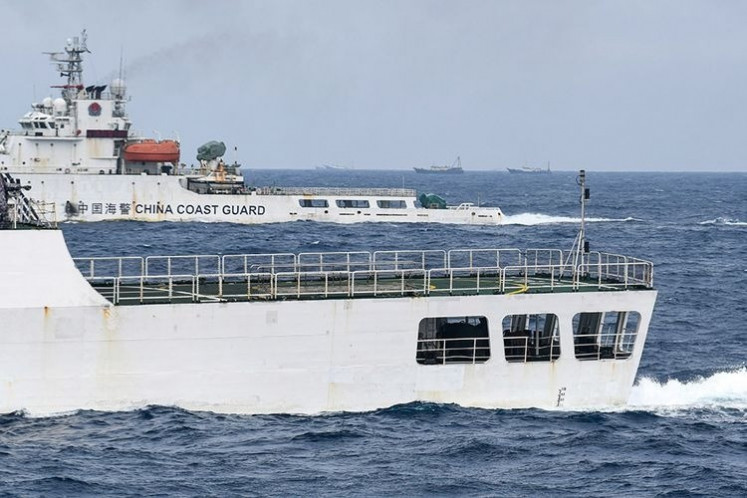Popular Reads
Top Results
Can't find what you're looking for?
View all search resultsPopular Reads
Top Results
Can't find what you're looking for?
View all search resultsBridging science and diplomacy for global leadership
Uniting science and diplomacy is needed to create lasting global impact.
Change text size
Gift Premium Articles
to Anyone
“Let us use science to uplift, not use science to destroy,” President Prabowo Subianto said in his speech on Sept. 23 at the 80th United Nations General Assembly in New York, the United States. The President’s address, on one hand underscored Indonesia’s commitment to supporting global peace, and on the other showed firm stance in applying science in the conduct of foreign policy, under the helm of Foreign Minister Sugiono
There is no doubt that science plays an important role in the development of a nation. Point four of President Prabowo’s Asta Cita (eight missions) is related to enhancing human resource development, science, technology, research and education, and empowering women and youth.
Earlier this year, National Research and Innovation Agency (BRIN) head Laksana Tri Handoko stated that Jakarta will host the 12th World Science Forum on Nov. 10-13, 2026, and will be themed “Science for Global Resilience and Equity”.
Some within the global audience can see that despite the 80th anniversary of Indonesia's independence, the development of science and research in Indonesia is not inclusive to all Indonesians. Science and diplomacy are considered as two sides of the same coin that only belong to the limited few who are fortunate to work either as scientists or diplomats.
Foreign minister Marty Natalegawa (2009-2014), speaking at the Asia Europe Foundation event on Science Diplomacy in July, said there is a nexus between research and science with diplomacy. This convergence is inevitable.
In 2007, Indonesia hosted the 13th Conference of the Parties for United Nations Framework Convention on Climate Change in Bali. The Bali Plan of Action and the Bali Declaration, the two outcome documents of the COP, have remained relevant and referred to by most scientists as well as diplomats in addressing the impacts of climate change.
The United Nations Convention of Biological Diversity/CBD has recognized Indonesia as a "megadiverse" country due to the unparalleled biodiversity across the archipelago. Meanwhile, UNESCO has also called Indonesia a superpower in culture. These acknowledgements will be impactful if diplomats and scientists sit together to formulate science-based foreign policy that supports Indonesian scientists and ease the process of their inventions accessing the international arena. Acknowledgements will not be meaningful if they are not followed with real actions.



















